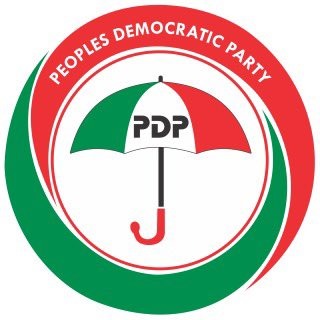Conrad Utaan, a candidate for the chairmanship of the Peoples Democratic Party (PDP), expressed significant concerns regarding the current economic struggles faced by Nigerians during a recent stakeholders’ meeting in Abuja. He noted that the hardships are widespread, affecting nearly every household due to the economic reforms implemented by President Bola Tinubu. Utaan emphasized that many citizens are feeling the pinch through rising prices of essential goods and services such as food, fuel, transportation, accommodation, and education. He argued that these economic challenges have hindered many families, with some children unable to return to school for lack of funds. Utaan underscored the public’s longing for the PDP’s return to power, claiming that a revival is critical for improving the prevailing dire economic conditions.
Despite the PDP’s history as Nigeria’s ruling party for 16 years until its ousting in 2015, Utaan cautioned that any aspirations for a comeback in the 2027 elections hinge on the party’s ability to resolve its internal conflicts and leadership issues. He stressed the necessity for the PDP to unite and strengthen its foundation if they hope to regain electoral power. Utaan highlighted that addressing internal divisions is essential for the party to present a cohesive front during future elections. He indicated that, if successful in securing the role of national chairman, he could apply his skills as an engineer to rebuild the party’s structure and image, thereby facilitating a path to victory in 2027.
Concerns about internal party unrest were further amplified by Utaan’s observations of recent defections of PDP members loyal to Governor Siminalayi Fubara to the Action People’s Party shortly after the Rivers local government elections. He warned that the internal strife in Rivers State mirrors national concerns and reflects broader issues within the party. Utaan appealed for the National Executive Committee to consider returning the chairmanship position to the North Central region, especially following Iyorchia Ayu’s departure from the role. He argued that resolving the crisis in Rivers would require strong leadership willing to engage with all factions within the party to foster reconciliation and collaboration.
Utaan’s argument extends to the larger political context, where he lamented the presence of “criminally inclined people” in power, contributing to the disarray seen within the PDP. He asserted that while the Rivers situation is currently critical, it could escalate if not adequately addressed. Utaan illustrated that genuine solutions will arise from within the state and will be contingent upon the willingness of party leaders to prioritize unity and problem-solving over factional disputes. He called for someone without preconceived notions or rivalries to guide the party back to unity, advocating humility and mediation as vital tools for fostering internal peace.
Supporting Utaan’s candidacy, Bemgba Iortyom, the former Publicity Secretary for Benue PDP, echoed sentiments regarding the importance of reconciliation among senior party members. He remarked that rather than focusing on blame, it is crucial to reconnect and reunite influential figures in the PDP who have historically played essential roles in the party’s framework. Iortyom endorsed Utaan, arguing that his unblemished background as a fresh candidate positions him as an optimal choice. He noted Utaan’s potential to facilitate harmony within the PDP ranks, particularly in resolving issues impacting the Rivers State chapter of the party.
In summary, the aspirations for leadership change within the PDP are wrapped in broader themes of economic recovery and party unity. Utaan’s vision for the party is anchored in a deep understanding of the social and political fabric affecting Nigeria today. His focus on addressing economic hardships and fostering internal reconciliation aims to set the stage for a PDP resurgence in future elections, especially as the 2027 electoral cycle approaches. As party members rally behind Utaan, discussions around reconciliation, unity, and effective leadership have taken center stage, emphasizing that the path to political recovery for the PDP is contingent upon resolving internal conflicts and reconnecting with the Nigerian populace yearning for change.














